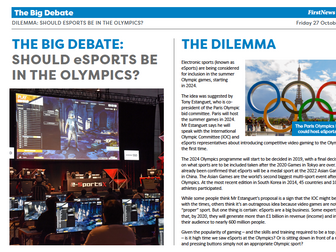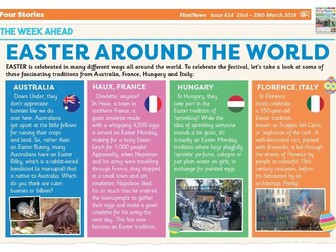
Look Closer Comprehension Issue 266 First News
Look Closer is part of the First News children's newspaper resource package for subscribers to six or more weekly copies of the newspaper. Download this example based on Issue 266 of the newspaper for free. Look Closer encourages pupils to look closer at one article in the week's newspaper and analyse it in-depth with questions based on the assessment focus strands. Useful for SATs practice. Teacher Answers and suggested levels also included.

